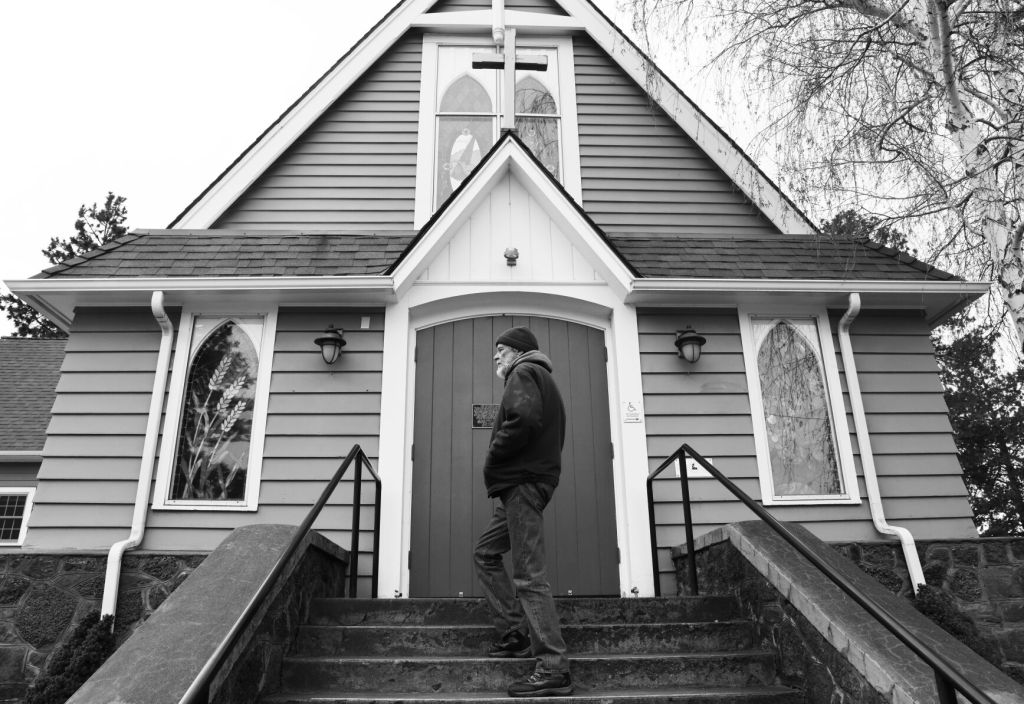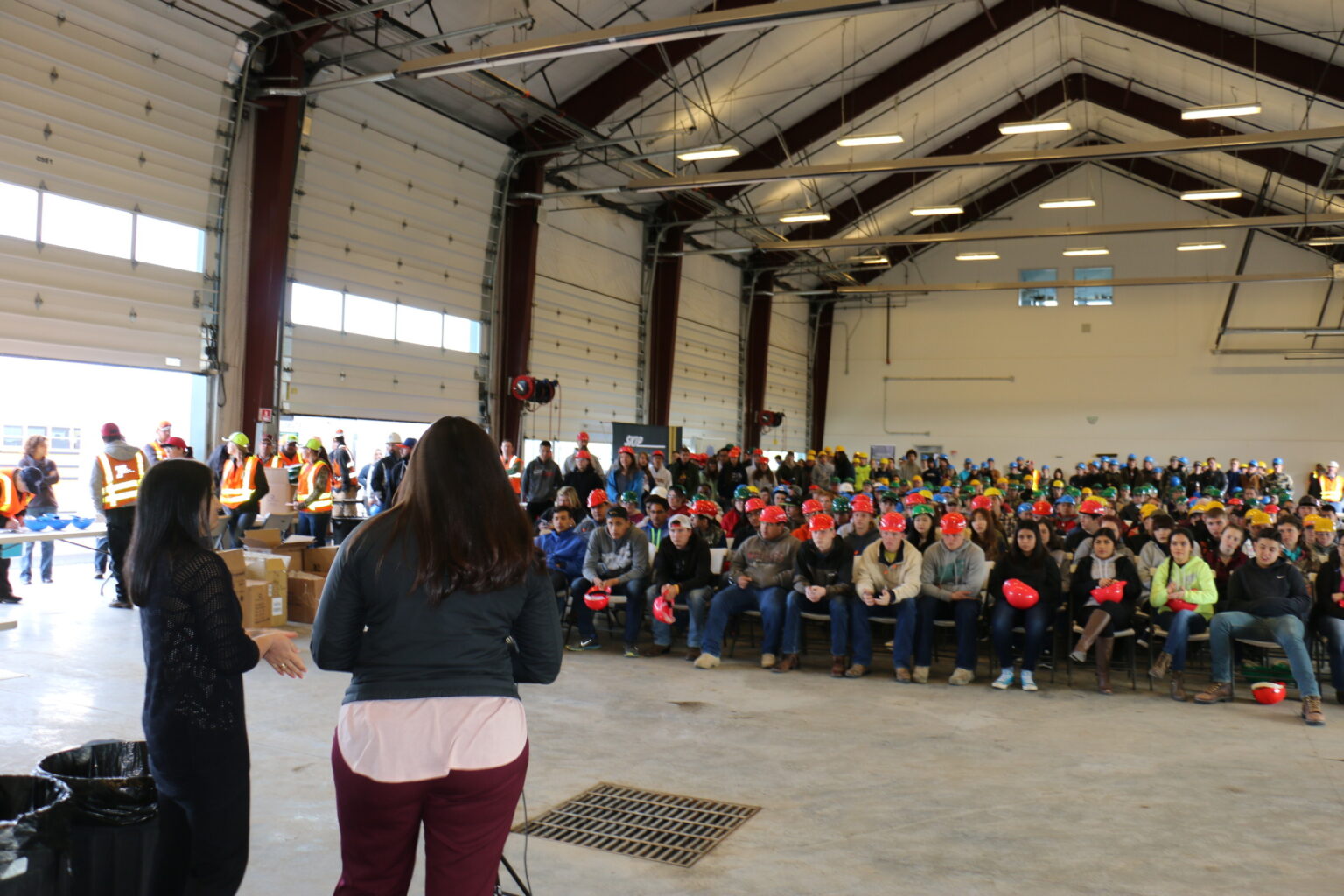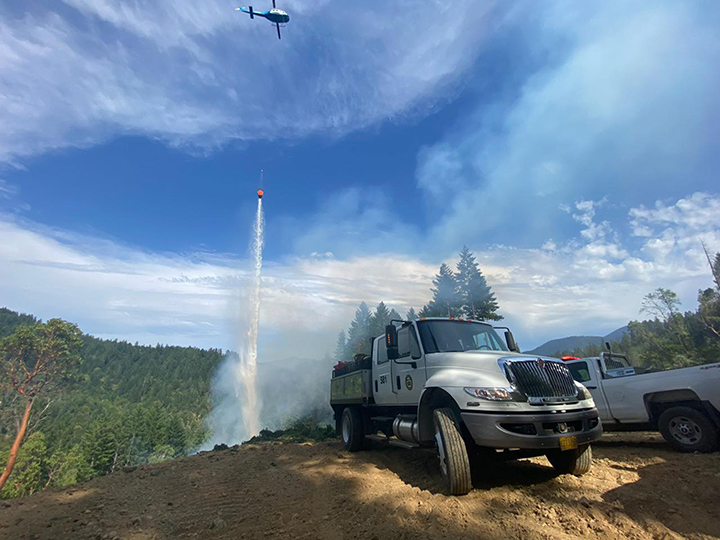Priced out of town after living in Bend for almost 50 years
Published 5:00 am Sunday, April 10, 2022

- Homeless Bend resident John on the steps of the Trinity Episcopal Church in Bend.
John spent most of his career working the line inside a lumber mill in Redmond. Sorting the lumber year after year was hard work, but at the end of each day, he had had a place in Bend he could call home.
Retired a few years ago, the Bend resident now collects social security and a pension from the lumber mill. Since John moved to Bend in the mid-1970s, he’d always rented a home, never imagining prices would one day skyrocket to unaffordable levels. That decision has left him with no place to live. John asked The Bulletin not to use his last name because he’s a longtime resident known by many locals and he’s embarrassed about his current station in life.
John, 69, has been moving from house to house over the past year, staying with friends for a few weeks or months at a time while he searches for his own housing. Not wanting to impose on any more on friends, his next step was a shelter and he’s been to a couple around town to see what that would be like.
Standing outside Family Kitchen in downtown Bend recently, bundled up against the cold in a green jacket and wool hat, John described his situation. For a few hours each week, he goes to the library, and with help from the non-profit Thrive, he searches the apartment listings. The search is over two months now, and still nothing.
“I just can’t understand why I can’t find a place to live,” John said, pulling down his face mask slightly to reveal a graying beard. “I make $2,000 a month, and $1,000 should be enough for a one-bedroom but everything is more than that. They are up to $1,400, $1,600 a month.”
There is an affordable housing option for seniors in Bend, but John was told the wait for a unit could be two years or more. He hasn’t had much luck in finding a place in Redmond either. The chance to retire with dignity, in the place that has been home for most of his life, is slipping away.
After checking online apartment listings and perhaps sending in an application, the rest of John’s day is slow. He now stays with a friend who is disabled and prefers not to be inside in the daytime so as not to disturb the friend’s lengthy naps.
So, he tries to keep busy elsewhere, helping out friends with odd jobs or doing some yard work. He stops by Family Kitchen in downtown Bend on occasion for a free meal. He brings one home to his disabled friend. John was married for a while but never had kids, so there are few relatives to turn to in a time of need.
John says he’d just like a normal retirement, just doing the little things that offer a little pleasure, without stress.
“That is the way it is supposed to be,” said John, with a smile. “A lot of it is my own fault, the situation I am in because I didn’t look forward into my future and never thought about it.”
As a young man growing up in Grants Pass in the 1950s and ’60s, the future wasn’t much on his mind. It was a time when life was simple but good. His dad worked for the state highway division and his mom worked for Sears. There was a little creek near his home where he fished for cutthroat trout. Building forts with friends and swinging on vines by the creek were other pastimes.
“That was the best time of my life,” he said, recalling his youth. “We grew up with a working mentality, I started mowing lawns and worked at Sambo’s, a pancake house. Then I got into the lumber industry.”
John moved from Grants Pass to Central Oregon in 1976 and found work with the lumber mill in Redmond, where he pulled the green chain — industry-speak for sorting lumber.
“Once I found the job that was all I needed,” said John. “Before I knew it, 40 years went by.”
John worked the swing shift for 17 years, coming home at around 2 a.m. He’d run some errands during the day then head back to work. After the lumber industry took a dive in the 1990s he got into road construction, driving a grade tractor and laying asphalt for a company based in Tumalo. He stayed in that business for two decades.
Camping and fishing took up his leisure time. Mushroom hunting was another hobby. If it was a rough week he’d kick back on the couch and watch sports on TV.
He never bought a house but came close once. He recalls a home he considered on the edge of Bend, on an acre of land. It was the 1980s and the place cost $46,000. A bargain by today’s standards, but at the time that amount of money seemed daunting.
“It was always a scary thought to buy a place,” said John. “I thought it was a lot of money so I just rented. That is all I have done, that was my mistake.”
John’s predicament is emblematic of the problems faced by seniors and retirees as their fixed income becomes less potent as prices rise. It works out if they already have a home, but renting can present challenges.
The lowest-priced places he can find are around $1,400 a month, which makes up 75% of his fixed income. The non-profit Thrive helps with the search because he had no experience with computers.
“I missed the computer age. Back in the day you would just look in the paper and find a place to rent. Thrive helps with applications. I am looking for a little one-bedroom apartment.”
If he can’t find one soon, John said he would consider going to Shephard’s House or the Bethlehem Inn, two homeless shelters in Bend.
“I have been to Shepherd’s House to see what that was about. That could be the next place I will end up, it’s kind of scary,” he said. “I am not there yet, but I see my future as heading that way.”
Bend Mayor Sally Russell said people in John’s position have resources in the city. She recommends John contact NeighborImpact, a local non-profit that supports many social services in Central Oregon, including housing.
“Neighbor impact is incredibly resourceful and creative and has systems in place that can help this gentleman,” said Russell. “I would also ask the affordable housing committee to listen to this gentleman’s story, and reach out to this gentleman and ask him to share his story.”
John’s fixed income and inability to find a place to rent could get a boost by going back to work. But full-time road construction is difficult on his aging body, especially in the warmer months.
“The heat gets to me, it kills me,” he said. “I am not as young as I used to be, especially in the summer I can’t be as active as I used to be.”
The story he’d like to tell is one of happy retirement, time to spend outdoors, and a home to call his own. Working on a road crew in his 70s, or taking a bed at a local homeless shelter was never something that came to mind during his long career.
If John does find a place to live, he plans to settle in and then head to a lake, where he dreams of reeling in trout from his favorite fishing hole.
On his flip phone, John keeps pictures of some of his prized catches from Ochoco and Prineville reservoirs. The real reward comes at dinner time. Whatever house he happens to be living at, he makes use of the oven to bake his catch. When asked how he likes them prepared, John thought for a moment and smoothed his beard — wrapped in foil and left in the oven for 20 minutes at 350 degrees.
A house may have been the one that got away from John in his younger years. But he still holds out hope that he can land a small apartment soon, then get on with retirement and live life on his own terms.







